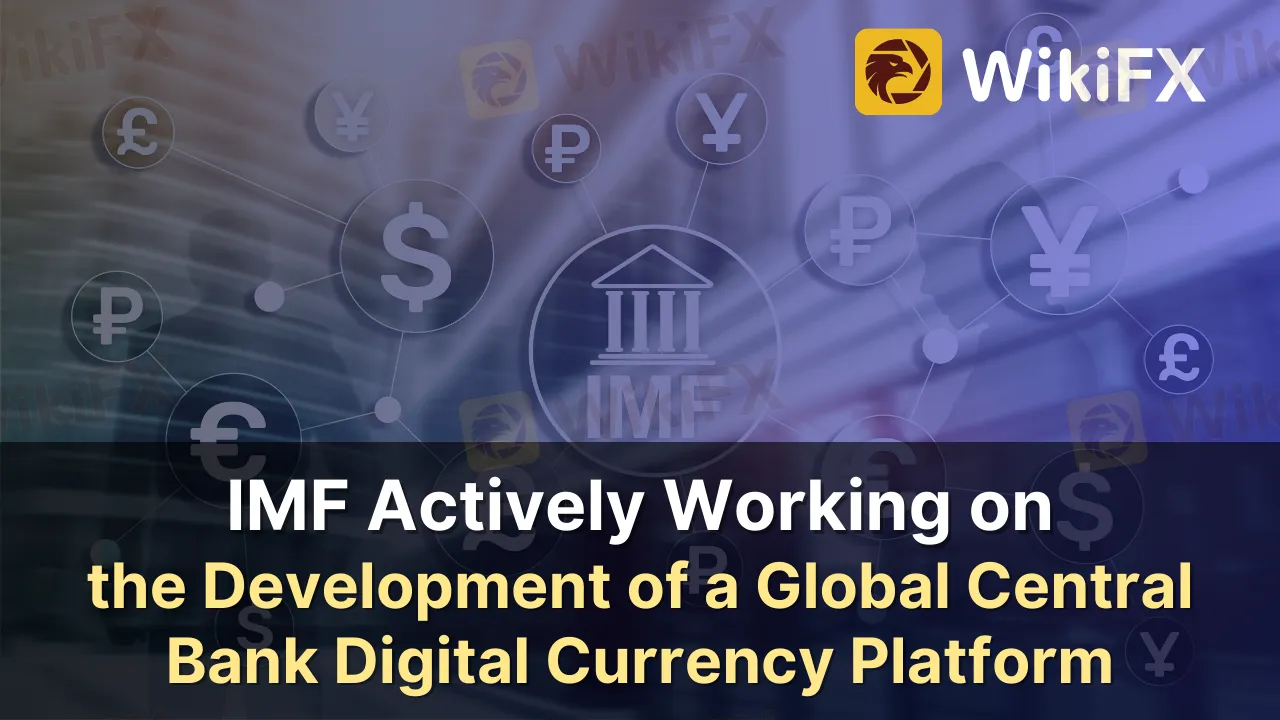简体中文
繁體中文
English
Pусский
日本語
ภาษาไทย
Tiếng Việt
Bahasa Indonesia
Español
हिन्दी
Filippiiniläinen
Français
Deutsch
Português
Türkçe
한국어
العربية
IMF Actively Working on the Development of a Global Central Bank Digital Currency Platform
Abstract:IMF drives the development of a global CBDC platform to streamline cross-border transactions and enhance global financial system efficiency.

The International Monetary Fund (IMF) is working hard to provide a uniform framework for Central Bank Digital Currencies (CBDCs). The purpose, as stated by IMF Managing Director Kristalina Georgieva at a recent conference, is to ease cross-border transactions.
The IMF conference, attended by African central banks, was held in Rabat, Morocco. The Managing Director emphasized that CBDCs shouldn't exist solely as isolated national projects. For transactions to be more efficient and equitable, a system that links countries together is needed. This requires interoperability, which will allow transactions to occur seamlessly across different digital currencies and countries.
“In order to enhance this idea of connectivity, we at the IMF are focusing our efforts on the establishment of a worldwide CBDC platform,” Georgieva declared.
The IMF hopes to persuade central banks to concur on a standardized regulatory structure for digital currencies. This unified platform is critical for allowing global interoperability among different CBDCs. Georgieva warned that a failure to reach a consensus on a common platform could leave a void, which could likely be occupied by decentralized cryptocurrencies.

To be clear, a CBDC is a sort of digital currency maintained and supervised by a central bank. Cryptocurrencies, on the other hand, are often decentralized and not controlled by a single organization or entity.
Georgieva provided an update on the state of CBDCs globally, revealing that around 114 central banks are already investigating CBDCs in one way or another. Approximately 10 of these have completed their investigations and are ready to move forward.
She emphasized the potential underutilization of CBDCs if they are created strictly for domestic use. In her view, their true capacity can only be fully realized when they are used internationally.
Georgieva also touched on the benefits of CBDCs for financial inclusion and the reduction of remittance costs. She noted that remittances currently come with an average cost of 6.3%, which translates to a hefty $44 billion annually. The use of CBDCs could help to reduce these costs significantly.
In addition, she insisted that CBDCs need to be backed by tangible assets. She acknowledged that cryptocurrencies can offer investment opportunities when they are asset-backed. However, when they aren't, they tend to become speculative investments.
The IMF's dedication to the development of a global CBDC platform signals a significant step forward in the world of digital finance. It recognizes the potential of CBDCs to transform global transactions and provides a vision of a more interconnected and efficient global financial system. The world will be closely watching as the IMF continues its work in this crucial area.
Get the WikiFX App on your mobile device to keep tabs on recent updates. You can get the App from this link:

Disclaimer:
The views in this article only represent the author's personal views, and do not constitute investment advice on this platform. This platform does not guarantee the accuracy, completeness and timeliness of the information in the article, and will not be liable for any loss caused by the use of or reliance on the information in the article.
Related broker
Read more

Unmasking the ‘Datuk’: The Anatomy of a RM638,205 Investment Scam
Authorities in Malaysia have launched an extensive investigation into a fraudulent stock investment scheme, which has resulted in losses amounting to RM638,205.

Unmasking the ‘Datuk’: The Anatomy of a RM638,205 Investment Scam
Authorities in Malaysia have launched an extensive investigation into a fraudulent stock investment scheme, which has resulted in losses amounting to RM638,205.

ATFX Enhances Trading Platform with BlackArrow Integration
ATFX integrates the BlackArrow trading platform, offering advanced tools for forex, crypto, and stocks with automation and real-time analytics for traders.

Exposing the Truth: What Happened with the Losses of Thousands of Dollars on the GlobTFX Platform?
The facts are clear and undeniably shocking—GlobTFX has caused significant financial losses to well-known traders in the Arab world. Eighteen victims have confirmed a total loss exceeding $22,372! But this is just the tip of the iceberg…
WikiFX Broker
Latest News
Germany's Election: Immigration, Economy & Political Tensions Take Centre Stage
WikiFX Review: Is IVY Markets Reliable?
Brazilian Man Charged in $290 Million Crypto Ponzi Scheme Affecting 126,000 Investors
ATFX Enhances Trading Platform with BlackArrow Integration
IG 2025 Most Comprehensive Review
SEC Drops Coinbase Lawsuit, Signals Crypto Policy Shift
Construction Datuk Director Loses RM26.6 Mil to UVKXE Crypto Scam
Should You Choose Rock-West or Avoid it?
Franklin Templeton Submitted S-1 Filing for Spot Solana ETF to the SEC on February 21
Scam Couple behind NECCORPO Arrested by Thai Authorities
Currency Calculator







